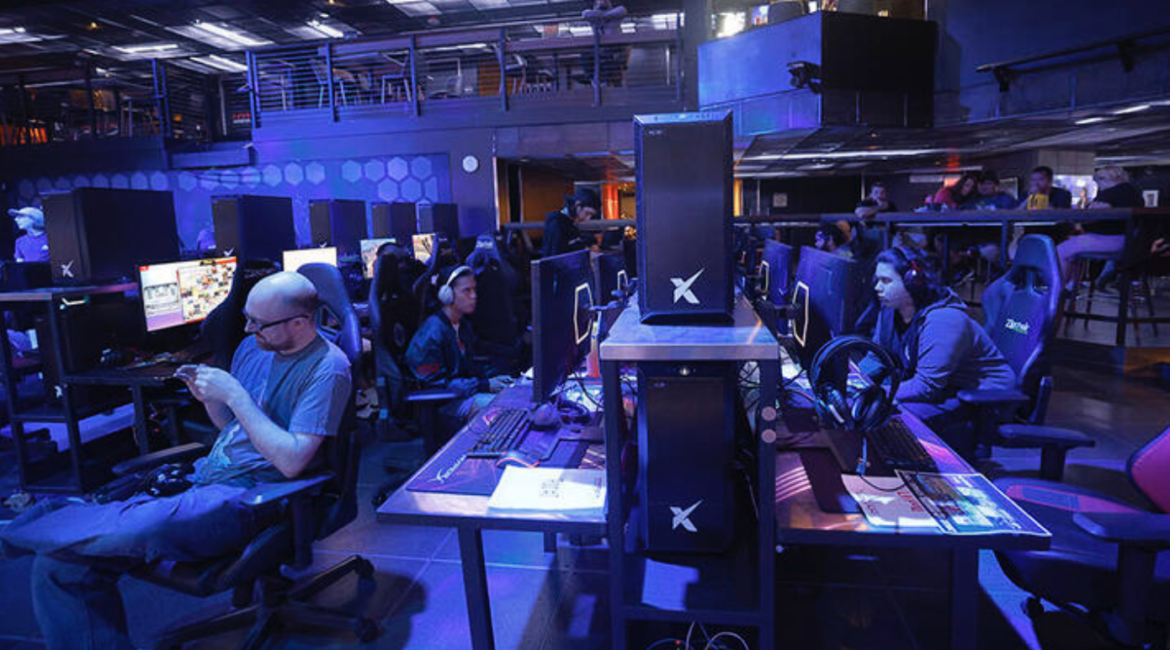The Esports Technical Advisory Committee inched closer last week to recommending Nevada’s first regulations for wagering on esports competitions.
Millions of people watch esports matches online or in person, including events at Luxor’s HyperX Arena and at Mandalay Bay’s Michelob Ultra Arena. Even Madison Square Garden Entertainment is promising esports competitions at the MSG Sphere at The Venetian when it opens its doors next year.
Experts told my colleague, McKenna Ross, earlier this month that esports could become the next big competitive thing for a city that has seen explosive growth in visitation for sporting events.
It stands to reason that betting on esports is a logical next step in connection with the competitions themselves.
But will there be much interest?
Brendan Bussmann, an industry analyst with Las Vegas-based B Global, said betting on esports is already happening.
“It’s just happening in a manner that is outside of the regulatory framework that exists in Nevada and other jurisdictions today,” he said. “This is in part of modernizing the regulation as all sports continues to evolve.”
Bussmann has said part of the evolution of sports wagering is to get “all of the players in the room and get everyone on the same page to regulate the market,” or it won’t happen.
“Its impact is yet to be determined in the bigger scheme of the industry,” he said. “Will it be material? Not likely, but this does not mean that we should not move the industry forward to regulate this segment.”
Clarifying rulebook
The Esports Technical Advisory Committee has been preparing for esports gambling all year and on Wednesday got its first look at a proposed regulation.
The committee ultimately decided to send the proposal back to the attorney general’s office for revisions.
The new esports regulation will be lodged within Regulation 22, which includes the oversight of sportsbooks.
The critical amendment says: “A book may accept wagers on events conducted by an esports league … if the book: obtains complete information concerning the manner in which the events are conducted by the league, including, without limitation, event rules; obtains complete information demonstrating that the events will be effectively supervised, have effective integrity safeguards in place, have verifiable outcomes, have outcomes generated by a reliable and independent process, have outcomes unlikely to be affected by any wager placed, be conducted in compliance with any applicable laws, and be consistent with the public policy of this state.”
The reason the committee sent the proposal back for revision is that members didn’t like the “esports league” reference, since many competitions are one-off tournaments that aren’t organized just by leagues. The committee wants to open up the state to wagering on computer game competitions without putting too many restrictions in place.
While state regulations ban betting on amateur competitions, except for collegiate sports and the Olympic Games, the committee made the case that all esports events involve professionals since they’re compensated with prize money.
The regulation puts a lot of responsibility on the sportsbooks to make sure the events will be fair to gamblers in the same way bettors can be assured of fair treatment when they wager on NFL games and all the other sports bets and propositions available to them.
Experts to be hired
Committee Chairman Paul Hamilton said he expects sportsbooks will have to hire esports experts to make sure their betting lines will draw two-way action. And books also will be on the front lines watching for cheating.
“They’re going to have to employ somebody that understands the game, the operators and what’s out there the same way they do in traditional sports,” Hamilton said before the unanimous vote to revise the first draft of the regulations next month.
“The level of technology that these books and these licensees have now created an environment where they more often than not are the first ones to figure out if somebody’s cheating or doing something incorrect,” he said. “If we get too far into the weeds, we’re going to create a document that’s impossible to navigate.”
The committee will meet again Oct. 24 to have another look at the proposed regulations, then possibly vote to advance them to the Nevada Gaming Control Board and the Nevada Gaming Commission, which would conduct public hearings on the proposed rules.
Only after a thorough examination of regulations would they become official policy and only then would we learn if people really want to bet on people playing video games.
Contact Richard N. Velotta at rvelotta@reviewjournal.com or 702-477-3893. Follow @RickVelotta on Twitter.

